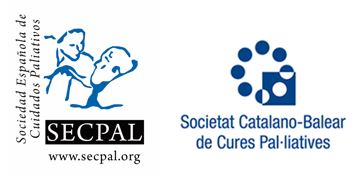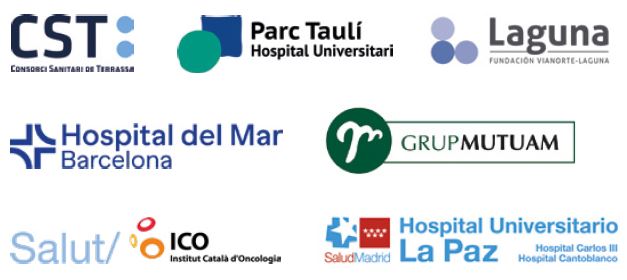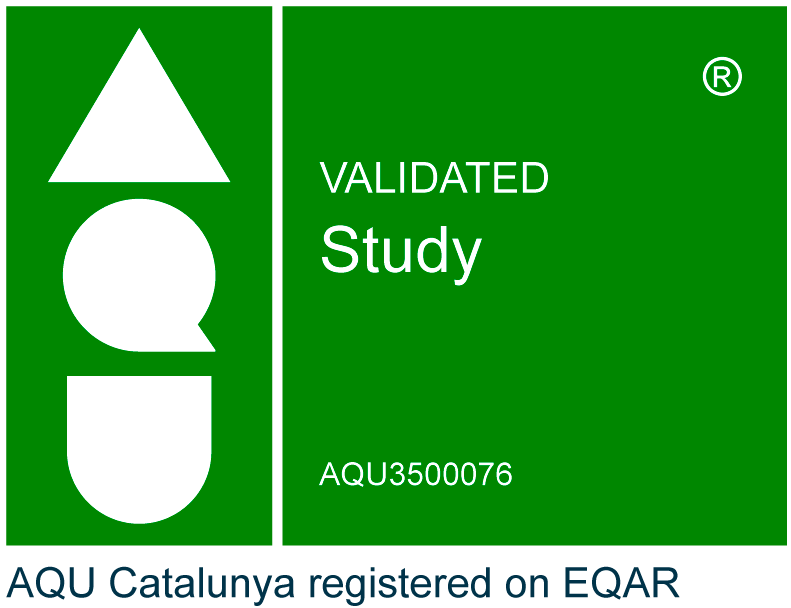University Master's Degree in Palliative and Supportive Care - Official
Reasons to study this master's degree
- Interdisciplinarity
The programme integrates teachers and students from different clinical disciplines such as medicine, nursing and psychology with one common goal: the care and support of patients with advanced diseases and their families. - We adapt to your professional and personal pace
The master's degree combines various teaching methodologies (asynchronous classes, readings, activities, participation in forums), which allows the student to take the master's degree and adapt it to their schedules. In addition, synchronous sessions are held with teachers to answer questions and work on cases, all with a tutorial follow-up to support the student during their studies. - Access to our doctoral programme
This is an official master's degree recognised in the European territory and accredited for accessing doctoral studies. The teaching team is made up of palliative care experts who are also lead researchers at national and international level. - Work placements in national and international palliative care teams and at our Comprehensive Centre for Advanced Simulation
You will be able to do work practices with national and international palliative care experts near your residence, which will last between 2 and 4 weeks. In addition, UIC Barcelona has a Comprehensive Centre for Advanced Simulation of over 1,000 m2 where the hospital and home setting are combined for learning in a clinically safe environment.

Guaranteed by:

Your work placements take place in in two different settings
You will have access to two different settings in your work placements: the Comprehensive Centre for Advanced Simulation, located on the Sant Cugat Campus, which allows safe learning led by clinical experts in medicine, nursing and psychology, and in external centres in the hospital, social health or home setting supported by leading national and international palliative care teams. Work placements with these leading professionals are personalised to cover the student's areas of interest in a flexible way and adapted to their circumstances and close to their residence.
Agreements with healthcare centres:
You will be able to do work placements at over 20 healthcare centres we have agreements with, including:

Let them tell you about it
STATEMENT BY THE PROGRAMME DIRECTOR

"The master's degree in Palliative and Supportive Needs covers the knowledge, skills and attitudes necessary to appropriately train medical, nursing and psychology professionals who care for people in advanced disease and their families. The teaching team is multidisciplinary and of recognised clinical experience and academic prestige, to ensure rigour in the content and the flexibility necessary to meet the needs of students who want to update their training, for those who newcomers to palliative care or who want to pursue doctoral studies in this field. It integrates work placement stays in national and international palliative care teams and at our Comprehensive Centre for Advanced Simulation. We offer personalised follow-up to students for the best results."
Testimony name: Joaquim Julià Torres
Master's Programme Director
Other master's and postgraduate degrees aimed at nursing professionals
Other master's programmes aimed at psychology professionals
Other master's programmes in the field of health
Presentation
The master's degree in Palliative and Supportive Care will train you in the integrated model of hospice philosophy in palliative care and the anthropology of care for people with advanced diseases. It will also teach you how to develop intervention models for interdisciplinary care of the physical, emotional, social and spiritual needs of people with advanced diseases and their families.
Practical training
Work placements will take place in two settings: with leading national and international palliative care teams in a hospital, social health or home setting, and at the Comprehensive Centre for Advanced Simulation, a safe learning environment with clinical experts in medicine, nursing and psychology.
Work placements with leading teams are personalised to cover the student's areas of interest in a flexible way and adapted to their circumstances and close to their residence.
- At the UIC Barcelona Comprehensive Centre for Advanced Simulation (CISA), our aim is to promote health-related education, research and innovation through learning and simulated practice, making every effort to ensure care quality and patient safety in cooperation with institutions and companies. UIC Barcelona has extensive experience in the implementing learning methodologies that guarantee patient safety.
Objectives
- Know the principles of the integrated model of hospice philosophy in palliative care and the anthropology of care for the person with advanced disease and at the end of their life.
- Develop skills, knowledge and methods of team intervention for the prompt detection and relief of suffering through the clinical control of symptoms.
- Develop intervention models for interdisciplinary care of the physical, emotional, social and spiritual needs of the person with advanced disease and their family.
- Develop skills, knowledge and attitudes to prepare a comprehensive palliative care programme in the home, outpatient and inpatient, hospital or social health setting.
- Know and manage appropriate communication and information with the end-of-life person and their family.
- Know the legislative framework and ethical issues involved at the end of life.
- Acquire skills for research and innovation in palliative care.
- Know the principles of clinical research applied to palliative care, as well as interpret scientific results and design research projects in palliative care.
WeCare Chair relationship
The Master’s Degree in Palliative and Supportive Care is designed and organised by the WeCare Chair for End-of-Life Care at UIC Barcelona. The WeCare Chair is composed of an interdisciplinary team of professionals from medicine, nursing, psychology and humanities. This relationship offers the opportunity for students to focus the master's degree final project (TFM) on one of the Chair's research lines and eventually join the research group to carry out their doctoral thesis with its support. It also offers the opportunity for work placement at Cuides UIC Barcelona, University Clinic of Support for Advanced Diseases and Palliative Care at UIC Barcelona, and thus complete a comprehensive itinerary for the student that includes care, training and research as part of the Universitat Internacional de Catalunya.
Who is it addressed to? Admission profile
Nursing, medicine and psychology professionals who want to advanced level training in caring for patients with advanced disease and their families.
Competences. Profile on completion
- Competence in palliative care focused on the needs of people with advanced diseases and their families.
- Develop and apply the competencies of each discipline in the palliative care model.
- Analysis of complex clinical situations with an interprofessional, scientific and human approach of excellence.
- Ability to promote change and drive continuous improvement in the care given to patients and their families.
- Training to transfer questions of clinical interest to research projects in palliative care and its development.
Teachers
- ABDÓ MIGUEL, Andrea
- BORQUE RODA, Ignacio
- BULLICH MARÍN, Ingrid
- CAMBRA LASAOSA, Francisco José
- COSTAS MUÑOZ, Emma
- CRESPO MARTIN, Iris
- CUENCA CASBAS, Paula
- DE IRIARTE GAY DE MONTELLA, Natalia
- ESQUERDA ARESTÉ, Montserrat
- ESTAPE MADINABEITIA, Tatiana
- FERNÁNDEZ CADEVALL, Silvia
- GARCÍA EROLES, Xavier
- GARCIA GONZALEZ, Maria Dolores
- GOMEZ ABRIL, Montserrat
- GOÑI FUSTE, Blanca
- GUERRERO TORRELLES, Maria
- JIMENO ARIZTIA, Maria
- JULIÀ I TORRAS, Joaquim
- LASMARIAS MARTÍNEZ, Cristina
- LLERAS DE FRUTOS, María
- LLORENS TORROMÉ, Silvia
- LORENZO IZQUIERDO, David
- MAJO LLOPART, Josep
- MARTINEZ FONT, Jorge Octavio
- MATENCIO PERALBA, Isabel
- MONFORTE ROYO, Cristina
- MORENO ALONSO, Deborath
- NITOLA MENDOZA, Lina Maria
- RAMO GONZALEZ, Ingrid
- RAYA MENA, Elisabet
- RIQUELME OLIVARES, Mercè
- RODRÍGUEZ PRAT, Andrea Mercedes
- ROSSY I PARÉS, Clàudia
- SÁNCHEZ MARTÍNEZ, Néstor
- SERRANO BERMÚDEZ, Sonia Gala
- TRELIS NAVARRO, Jorge
- VILA ALARCÓN, Raquel
Internship
- The practices will take place in two settings: with leading national and international palliative care teams in a hospital, social or home setting and at the Comprehensive Centre for Advanced Simulation with experts from different clinical areas such as medicine, nursing and psychology. Every effort will be made so that work placements are carried out in a place close to the student’s residence to facilitate reconciliation with their work or personal life.
- Through the Comprehensive Centre for Advanced Simulation (CISA) at UIC Barcelona, we aim to promote training, research and healthcare innovation, through learning and practice in simulation, to guarantee quality care and safety.
- You can do your internships in Ireland and Romania.
- You can do internships in our University Clinic of Support for Advanced Diseases and Palliative Care, CUIDES.
More information about CUIDES
You can do internships at
| Badalona Servicios Asistenciales | Arnau de Vilanova, Lleida | Consorci Sanitari de Terrassa |
| Consorci Sanitari Parc Tauli | Domusvi | Fundación ViaNorte la Laguna, Madrid |
| Hospice Casa Sparantei, Rumania | Hospital Austral Argentina | Hospital de Martorell |
| Hospital del Mar | Hospital La Paz de Madrid | Hospital San Juan de dios Pamplona |
| Hospital Sant Joan de Reus | Hospital Universitari Son Espases | ICO Badalona |
| ICO Girona | ICO Hospitalet | Mutua de Terrassa |
| Mutuam Güell | Mutuam Pades | Our Lady’s Hospice Dublin, Irlanda |
Prerequisites & admissions
Enrolment in the master's degree through the direct access route requires having graduated a university degree in any of the bachelor's degrees programmes in Nursing, Medicine and Psychology (with a university master's degree in General Health Psychology or certified as a specialist clinical psychologist).
Student admission criteria and the weighting of each of them are listed below:
| Ponderación | Criterios | Aspectos a valorar |
|---|---|---|
| 30 % | Expedient acadèmic | Nota mitjana del títol universitari |
| 60 % | Currículum vitae | Experiència professional en el camp de les cures pal·liatives Pràctiques a l’estranger en el camp de les cures pal·liatives Pràctiques extracurriculars en el camp de les cures pal·liatives Publicacions en el camp de les cures pal·liatives Congressos en el camp de les cures pal·liatives |
| 10 % | Entrevista i carta de motivació | Interès per: exercir les cures pal·liatives; carrera investigadora i doctorat a UIC Barcelona Habilitats i aptituds personals transversals necessàries per exercir en cures pal·liatives |
Admission process
If you have decided to study this master’s degree, follow the steps below to complete the admission process. We advise you not to delay as places are limited.
1. Online application for admission
2. Send the following documentation (*)
Students who have official Spanish university degree
- An attested photocopy of your degree certificate or an attested photocopy of the receipt for payment of the fees required to issue the degree certificate.
- An attested photocopy of your academic transcripts from past university studies.
Students who have official university degree form a foreign university
- A legalised original photocopy of your degree certificate.
- A legalised original photocopy of your academic transcripts from past university studies.
In all cases:
- One passport-sized photo.
- Photocopy of your national ID card (DNI) or passport.
- Up-to-date CV.
- Letter of motivation
- If the documents are in a language other than Spanish, a sworn Spanish translation of your university degree certificate and academic transcript must be submitted.
3. Interview
Interview with the master’s degree coordinator.
Once admitted, you can begin the place reservation and registration process.
Admission criteria
It is required, according to the provisions of Article 16 of RD 861/2010, to be in possession of an official Spanish university degree ior another issued by a higher education institution belonging to another State that is a member of the European Higher Education Area that authorizes it for access to master’s degree courses.
The entrance exams consist of a weighted assessment of the following documents:
Once a decision regarding your admission has been made, the Information and Admissions Service, responsible for managing the tests, will communicate the result to each candidate.
Reservation and enrolment
Candidates who have been accepted into a master's or postgraduate degree programme will receive an acceptance letter that is contingent on payment of the reservation fee.
- Place reservation is effective by payment of the amount stipulated as per programme, within ten business days of receipt of the admission acceptance letter.
- Once a place has been officially reserved, if a student fails to meet, always according to state or autonomous community legislation in force, the requirements for admission to the degree course; does not hold the required qualification required; or the course does not materialise due to insufficient registrations, UIC Barcelona will reimburse the full amount of the reservation fee.
- If the student withdraws from the course for any reason, UIC Barcelona will withhold the reservation fee in its entirety with no obligation to reimburse the amount, as compensation for any damages or losses incurred.
- It will be understood that non-payment of the reservation fee means the student waives their place, and thereby allows UIC Barcelona to cancel and leave void the application submitted for a place.
Grants & financial aid
Discounts
- 10% if you are a former UIC Barcelona student
- 15% for UIC Barcelona Nursing, Medicine and Psychology students who are in their last year when applying for admission
- 10% for special and general large family and special single parent family categories
- 50% for disabilities greater than or equal to 33%
Payment terms
- 40% within 10 days after registration has been formalized. The amount of the place reservation will be deducted if it has been paid. (20% of the tuition fee within 15 days after obtaining admission.)
- 20% before November 30
- 20% before January 31
- 20% before March 31
Funding
UIC Barcelona holds agreements with various banks through which you can finance your degree with favourable conditions. You can check the conditions for financing your degree on the following website:
